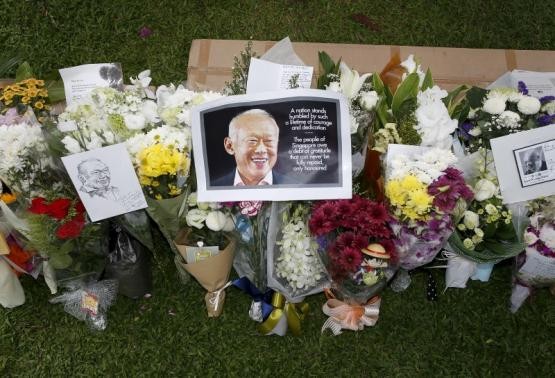Local officials in the Guangdong Province, where the Dabu county-situated residence of Lee Kuan Yew is located, plan to invest 40 million yuan to turn the ancestral house into a tourist spot.
The tourist landmark will include a Lee Kuan Yew Memorial Hall in honor of Singapore's first prime minister. It will also be infused with Chinese Hakka cultural flavors, as revealed by the Hong Kong newspaper Wen Wei Po Daily.
Li Muwen, Mr. Lee's great grandfather, built the ancestral house he called "Zhonghandi" in 1884 with the money he earned in Singapore.
Wen Wei Po also reported that some time in 2007 and 2008, local authorities have refurbished the house and its nearby areas.
In 2014, the first phase of the project officially began. The project is targeted to be finished this year.
Apparently, the Lee Kuan Yew residence has already been attracting locals and tourists alike who wish to know more about the prime minister's life and genealogy.
The announcement of the project, which came days after the death of Lee, earned the ire of Singaporean netizens, citing the authorities' exploitive scheme.
"Trying to capitalize on his fame for selfish gain. I doubt our beloved father have even step foot [sic] in a house built by his great grandfather. So how can preserving it be in his honor? We should seek the government to preserve his Oxley house even when this is against his living wishes," posted netizen Jones Lee. The Oxley house is the leader's residence in Singapore.
Another user, Mee Mee, wrote: ". . . not only opportunistic but fame-hunger [sic] too to tell the world all great and talented overseas Chinese are descendent from China!"
Meanwhile, Chester Chen, another online user, stated in defense of the project: "In Chinese society and culture, it's common to worship someone in the same ancestral line who is deemed a great man. Anyway it's in China so feel proud that they recognize the work of a fellow ethnic Chinese and honors [sic] him this way."



























